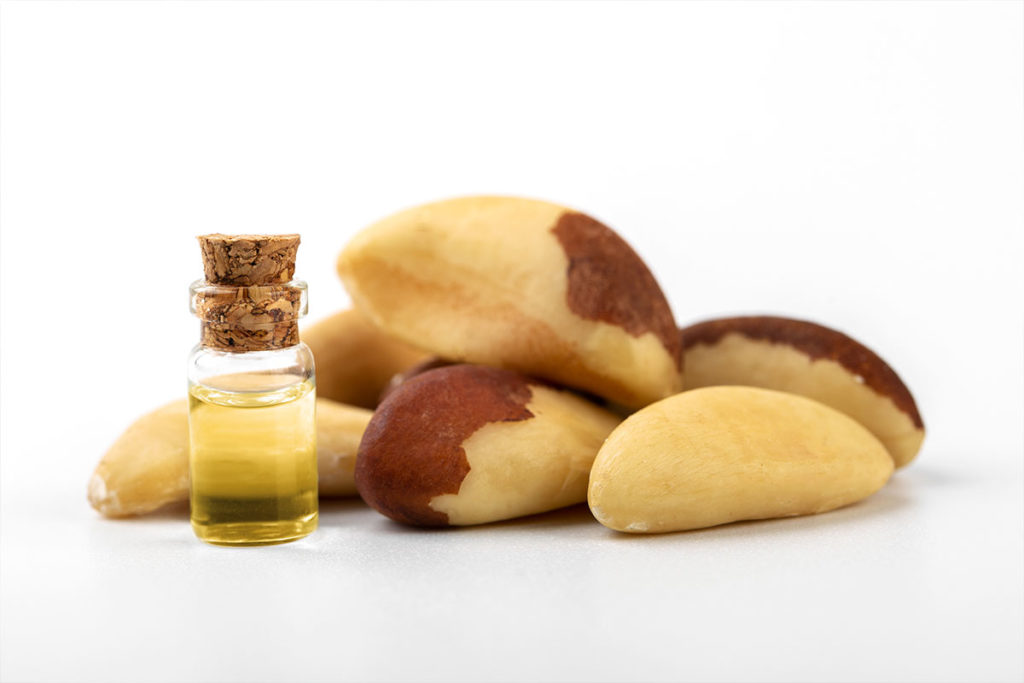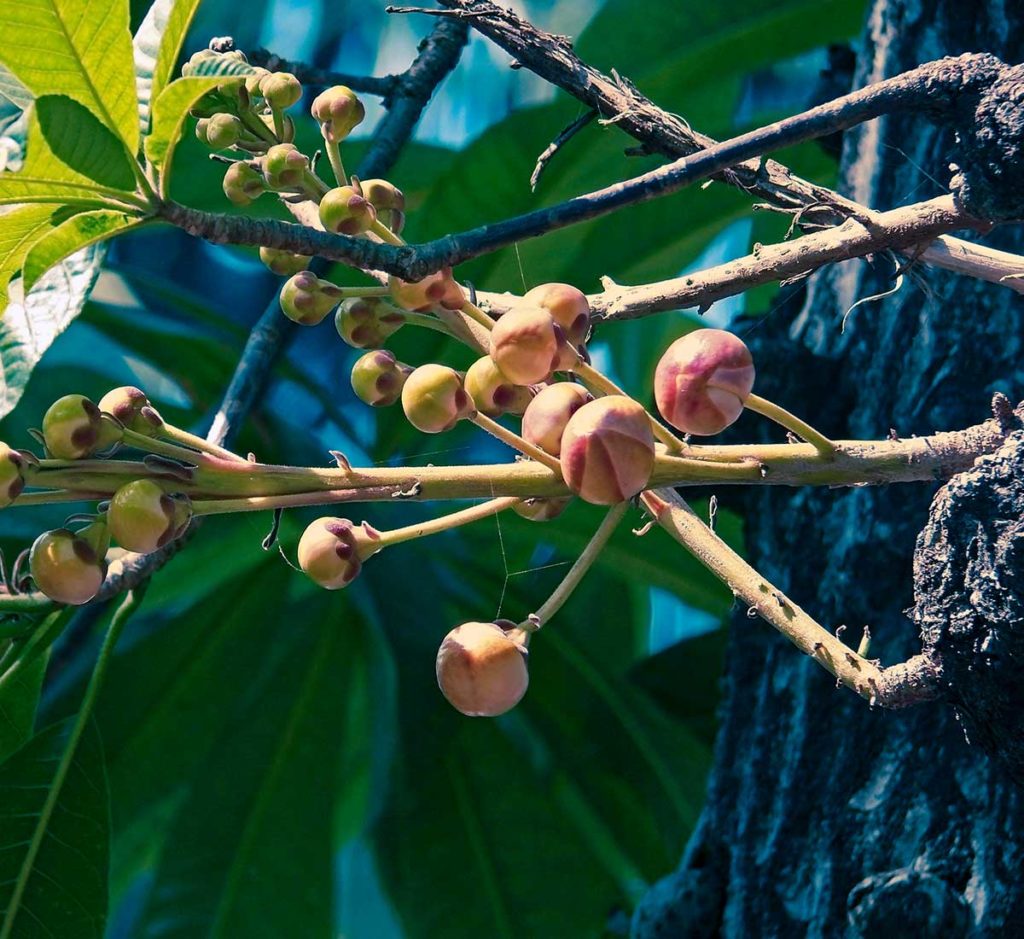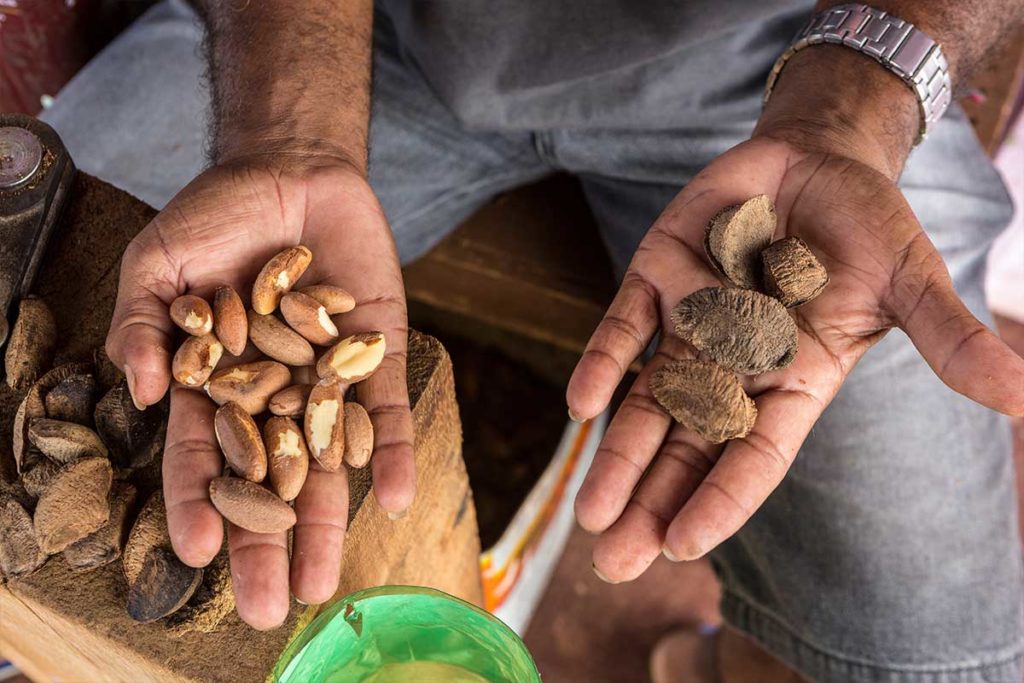
The importance of Brazil nut oil for the cosmetic and food industries
Shelled and dried Brazil nut kernels are processed to obtain a high-quality, cold-pressed oil which is used both in food and as a component in premium skin care. During the cold pressing process, a large amount of the nutrients and unsaturated fatty acids are retained. The mild flavour makes the oil especially versatile for use in a wide range of dishes. The cosmetic industry values the product as it provides the skin with moisture and vitamin E. The nourishing effect is used in various products including body lotions, shampoos and cremes.




